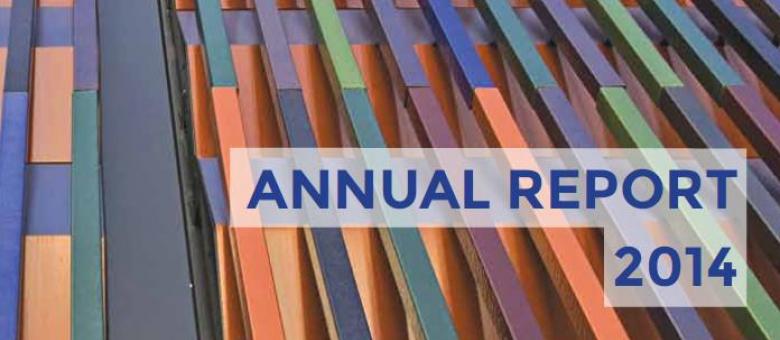
Publikationen

ICOM Annual Report 2014
2014, a year full of change
Prof. Dr Hans-Martin Hinz, ICOM President
Prof. Dr Anne-Catherine Robert-Hauglustaine, ICOM Director General
“Every year around the world, one hundred new museums are said to open their doors to the public. Opening a new museum is the dream of every architect, curator, collector and sponsor, rightly due to the new symbolic value tied to this matter.” These are the words used by Isabella Pezzini to delve into to the topic of new museums in her work co-authored with Umberto Eco, El museo (the museum), Casimiro, 2015, p. 47.
The International Council of Museums (ICOM), which turns 70 in 2016, is pondering this central issue of the museum of tomorrow. Long viewed as bygone, even old-fashioned institutions, today museums are seeing extraordinary development. New museums are appearing around the world, remarkable for their architectural features but above all, for the universal access that they provide to culture. In 2014, ICOM and UNESCO drafted a recommendation on the protection and promotion of museums and collections, placing museums more explicitly at the heart of the exchanges that occur between peoples and societies. This is a first step in considering a new definition for third-millennium museums, as Eco highlights.
ICOM has also joined forces with major international institutions to support and defend countries in the throes of armed conflict, including Iraq and Syria, to fight the spread of illicit trafficking in cultural property and develop tools to confront emergency situations. ICOM supports concrete and concerted efforts: a new platform, the ICOM International Observatory on Illicit Traffic in Cultural Goods, was launched in July 2014, and three Red Lists are being finalised, concerning Iraq, Libya and West Africa, including Mali.
Training is also at the heart of ICOM’s activities, and 2014 saw two successful training seminars in China at the Palace Museum, each of which involved some thirty young museum professionals. Our national and international committees are also undertaking a number of initiatives and should be encouraged to do so, notably via special projects and grants made available by the SAREC. In 2015, ICOM is pursuing its ambitious projects: acting on a worldwide level, coordinating actions to enhance museums of all types, working with international bodies and developing reference tools for museum ethics and training.
A nearly 35,000-member-strong network, a team of 24 Secretariat staff members and nearly 200 committees are all striving to assert the vital role of our organisation in global dialogue on heritage and museums.
Download:
http://icom.museum/fileadmin/user_upload/pdf/Activity_report/ICOM_activi...





